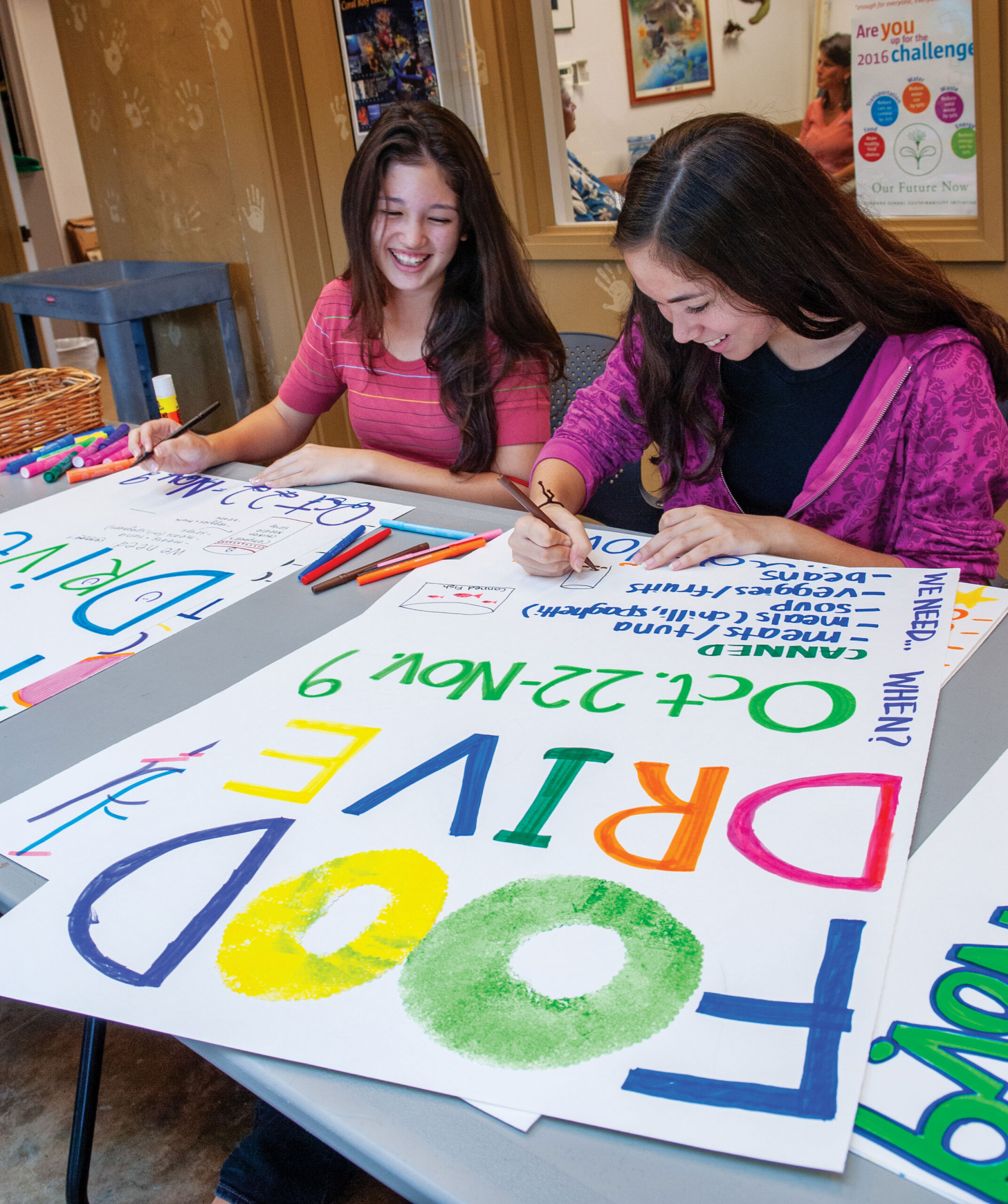President Mike Latham ’86
Punahou’s new mission statement defines our school as a home for us all to “dream and discover our purpose and kuleana to Hawai‘i and the world.” The concepts of “discovery” and “purpose” are fundamental to the growth we envision for our students. As they study the sciences and mathematics, they learn more about the natural world of life, matter, and motion, and come to understand the quantitative language and principles through which we interpret it. As they immerse themselves in fields like English, history, modern languages, and the arts, they explore the deeper meanings we attribute to human nature and culture. As they grow intellectually, they also grow personally, coming to learn more about themselves, who they are, and who they might aspire to become.
Every day, in our classrooms, laboratories, theatres, and athletic fields, I am inspired to watch our students develop such a mature sense of self-knowledge and understanding. I am always struck, moreover, by the pivotal moment at which they shift from asking solely what they are good at, or where their talents lie, to also considering what they care about, what matters to them, and what they might commit themselves to.
The work of service, I believe, is fundamental to that process of lifelong growth and discernment. For over 30 years, a community service requirement in the Academy has provided a powerful means for students to work on projects ranging from providing companionship to elderly kūpuna, to refurbishing furniture for donation to local organizations, removing invasive species from fragile ecosystems, or helping provide shelter and support for the hungry and homeless. Over the past two decades, the Luke Center for Public Service has coordinated and promoted those efforts across every grade level, empowering students to draw direct connections between the concepts they have learned about in classes and the lived experience of the people around them. Along with the Case Accelerator for Student Entrepreneurship, the Luke Center has also played a pivotal role in empowering students to wrestle with the great challenges of our time, including climate change, food security, human migration, cultural preservation, and persistent poverty.

The creativity and innovation displayed by our students, moreover, is striking. As even a glance at the service experience of some of our most recent graduates reveals, a Punahou education goes well beyond the walls of our own campus. Drawing on her knowledge and experience in art courses, Katerina Im ’23 launched “Plastic 4 a Purpose,” an innovative organization that cleaned beaches and converted plastic debris into marketable jewelry. The proceeds from sales supported the formation of a club that has fundraised for the Aloha United Way and promoted environmental education through classes at the Honolulu Zoo’s camp for kids and the Children’s Discovery Center. Harley Wolters ’23 conducted focused research on the intersection between food insecurity and mental health, inquiry that led her to volunteer at the Hawai‘i Foodbank, the Salvation Army, and HUGS, an organization that supports families of terminally ill children. Concerned with the challenges that many children have in gaining access to necessary school supplies, Shea Sakahara ’23, began to solicit donations of school supplies as an 11-year-old student in middle school. By his graduation, he had delivered an astonishing 9,000 supply packages to schools across Hawai‘i as well as a site in the Philippines.
These commitments extend to many of our wider Punahou family as well. As the article in this issue about Yunus Peer and the grassroots Teachers Across Borders South Africa so brilliantly illustrates, service is a way of life for many of our faculty and staff too. Our alumni community, moreover, is filled with leaders in public and community service who draw on their knowledge, skill, and compassion to help build a more just and humane world.
This all resonates strongly with Punahou’s sense of mission. As Ke‘alohi Reppun ’99, director of our Kuaihelani Center for ‘Ike Hawai‘i reminds us, the Hawaiian word kuleana carries a deeper significance than we commonly recognize. While we so often translate it as “duty,” or “responsibility,” we truly fulfill our kuleana when we act with a sense of profound gratitude and a recognition of the great privilege it is to do the work we have been given to do. That framing captures my own perspective perfectly. It is indeed a great privilege to work alongside our students, faculty, staff, alumni, and families to help Punahou realize its full potential in the community to which we belong, and I am profoundly grateful for that opportunity. I hope that you find the stories in this issue as inspiring as I have.
